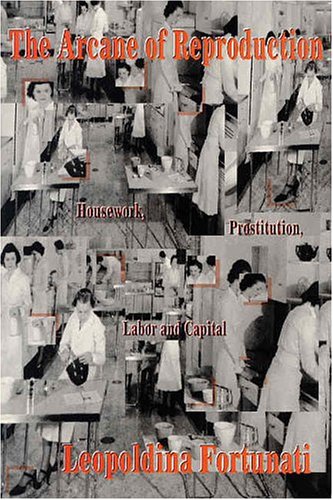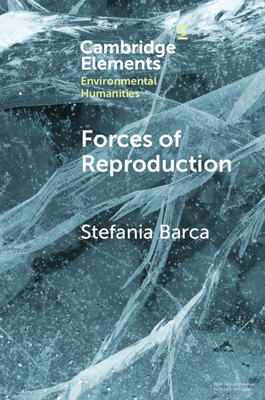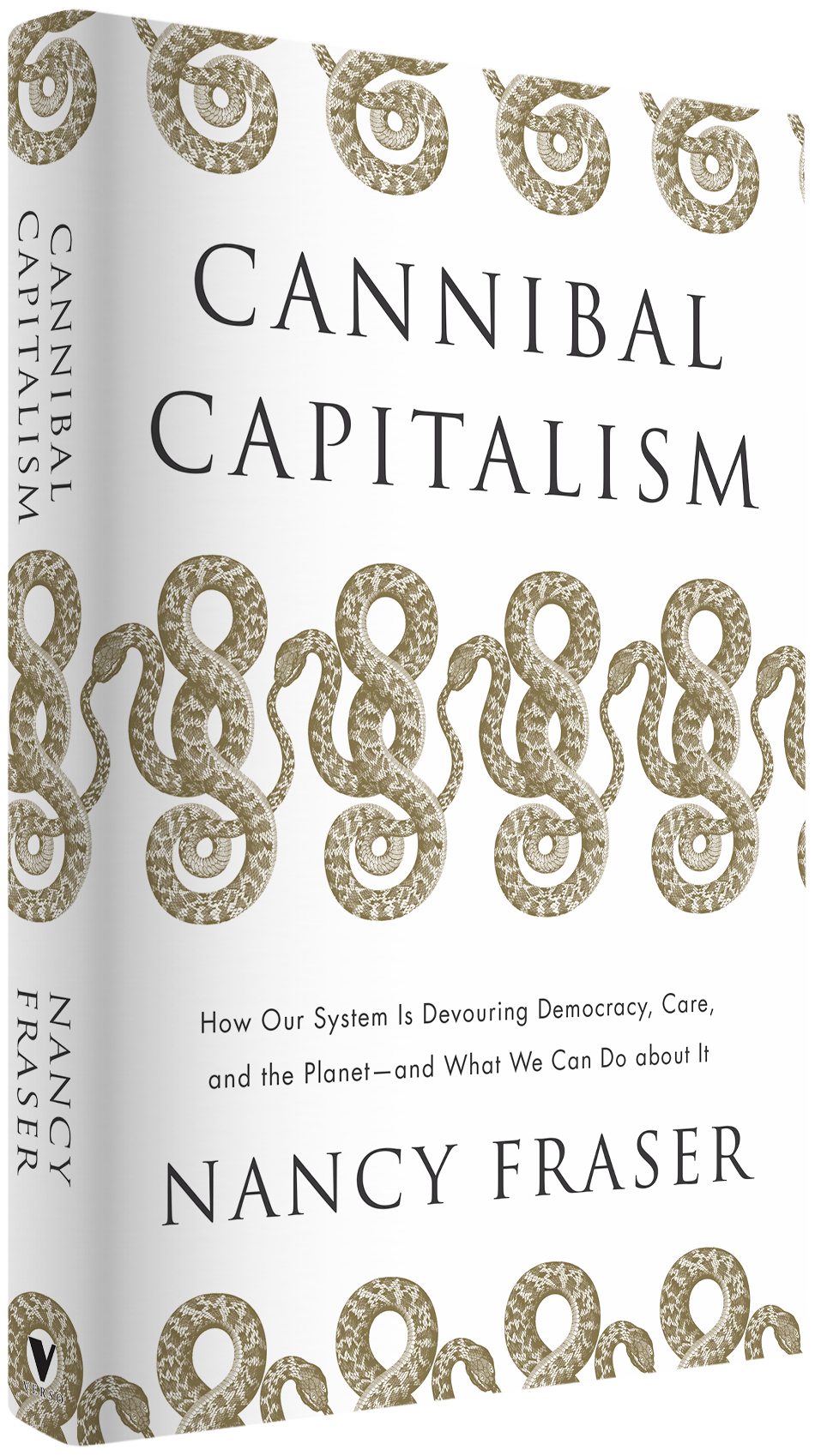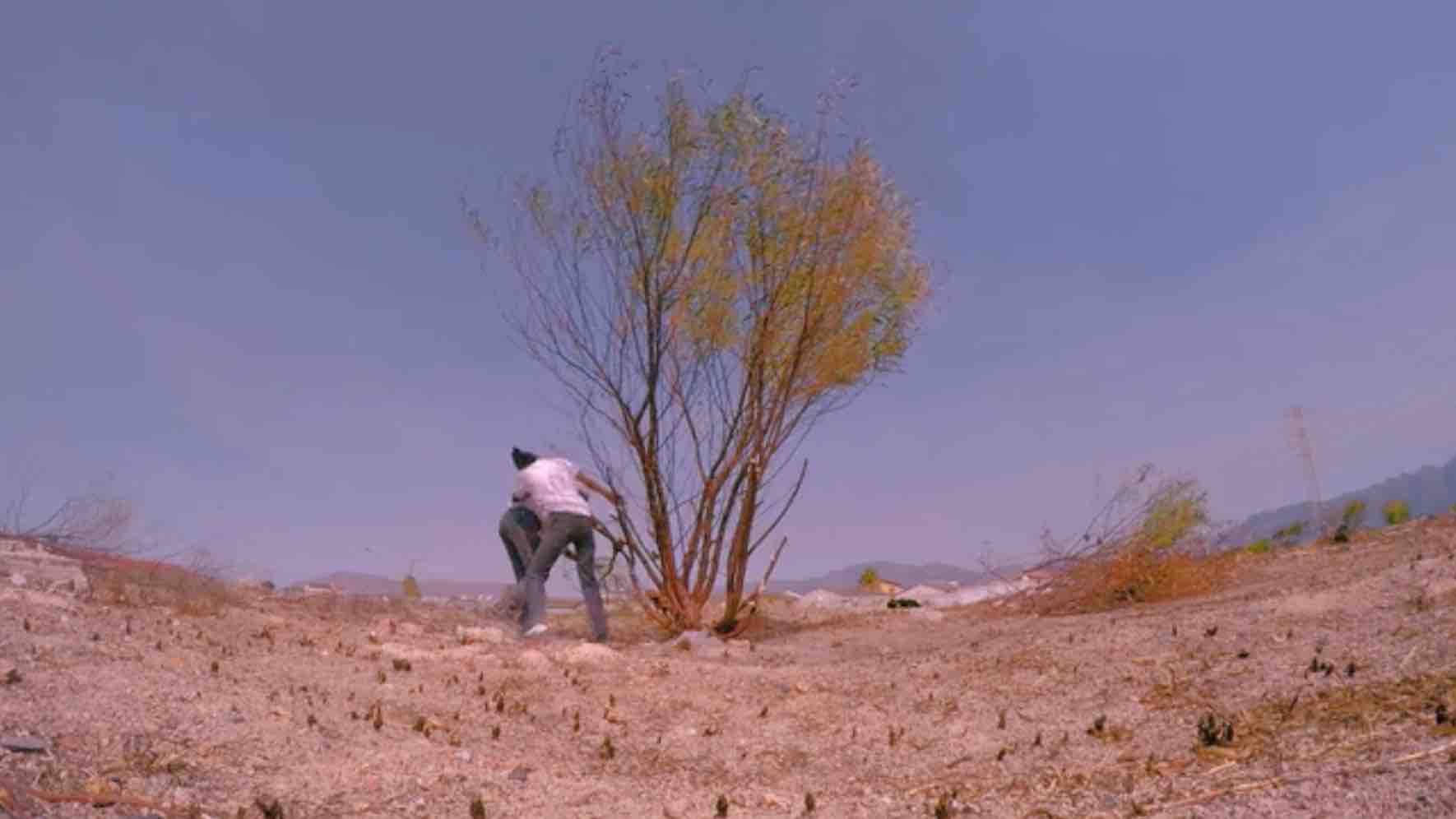Political Ecology Reading Group at KTH
A pressure that there’s more
What do you do after a course has finished and you still feel a pressure that there is more to be learnt and reflected upon? A pressing need is there to engage with other texts, or return to those you have studied? And to do this together with others feeling the same pressure…
Well, here at KTH in Stockholm—and after the course AL2121 Global Development and Political Ecology ended in December 2023—we started in the spring of 2024 a reading group, a voluntary seminar on political ecology. We are 19 in total with 17 students, a former student, a postdoc, and a professor. To read texts together is something people have done for a long time when critical knowledge and camaraderie has been called upon to understand the world and grounding action in collective reflection. So, there is nothing special or peculiar about our simple reading group. Below we have posted what we have read so far so that we can share with those interested in similar things. This is a site under construction. Lets see where it takes us! (12 April 2024)
- Meeting #1: Ecofeminism and Politics of Care
- Meeting #2: How To Win! Mobilisation and Political Strategy
- Meeting #3: Extraction, Automation, Work
- Meeting #4: Recognizing and Connecting Our Struggles: From China and Beyond
- Meeting #5: Racial Capitalism
- Meeting #6: Cannibal Capitalism
Meeting #1: Ecofeminism and Politics of Care
March 2024


 We engage with texts on how feminists have extended Marxist analysis about capital accumulation, commodity production, and alienation—and explore ways forward in terms of care and alternative economies including degrowth. We do this through three generations of Italian women scholars: Leopoldina Fortunati, Silvia Federicci (whose excellent Caliban and the Witch was part of the course AL2121), and Stefania Barca.
We engage with texts on how feminists have extended Marxist analysis about capital accumulation, commodity production, and alienation—and explore ways forward in terms of care and alternative economies including degrowth. We do this through three generations of Italian women scholars: Leopoldina Fortunati, Silvia Federicci (whose excellent Caliban and the Witch was part of the course AL2121), and Stefania Barca.
You can either first read the articles below by Stefania Barca and Neer Singh as they place feminist politics of care in the contemporary present, and then read the classic foundation by Leopoldina Fortunati. Or you can start with the more abstract introduction by Fortunati. It doesn’t matter that much.
1) This is a classic book that develops the foundation of feminist extensions of Marxism, focusing on that labour that is essential for capital accumulation but which cannot and must not be seen or paid for in full. This is what feminists call social reproduction. Here Fortunati, in an elegant and clearly worded chapter, summarise Marxist analysis of capital accumulation, seeks out contradictions that is still very relevant, and explains the realm of social reproduction.
- Fortunati, Leopoldina. 1995. The Arcane of Reproduction: Housework, Prostitution, Labor, and Capital. New York, NY: Autonomedia. _ First chapter, “Production and Reproduction”
2) The following texts centres the contribution to environmental and critical thought by eco-feminist environmental historian Stefania Barca, now at University of Santiago de Compostela in Galicia, Spain. The texts, some in collaboration with others, sets up a communication with other bodies of literature including feminist political ecology, care, and degrowth. The texts also includes an effective unpacking of how ‘normal’ (and often male) industrial labour needs to be taken into account as we think through how to transition towards less exploitative and extractive modes of production and reproduction. Neera Singh brings a short effective piece on environmental justice and post-growth.
- Barca, Stefania, Giovanna Di Chiro, Wendy Harcourt, Ilenia Iengo, Panagiota Kotsila, Seema Kulkarni, Irene Leonardelli, and Chizu Sato. 2023. ‘Caring Communities for Radical Change: What Can Feminist Political Ecology Bring to Degrowth?’ In Contours of Feminist Political Ecology, edited by Wendy Harcourt, Ana Agostino, Rebecca Elmhirst, Marlene Gómez, and Panagiota Kotsila, 177–206. Gender, Development and Social Change. Cham: Springer International Publishing. https://doi.org/10.1007/978-3-031-20928-4_8.
- Barca, Stefania. 2023. ‘Dimensions of Repair Work.’ Dialogues in Human Geography 13 (2): 255–58. https://doi.org/10.1177/20438206221144827.
- Singh, Neera M. 2019. ‘Environmental Justice, Degrowth and Post-Capitalist Futures’. Ecological Economics 163 (September): 138–42. https://doi.org/10.1016/j.ecolecon.2019.05.014.
3) This interview is chosen as an introduction to Stefania Barca’s excellent book Forces of Reproduction, which you can borrow at the library or purchase when you get the chance.
- Turhan, Ethemcan, and Stefania Barca. 2022. ‘Keeping the World Alive and Healthy: The Radical Realism of the “Forces of Reproduction” – An Interview with Stefania Barca’. Undisciplined Environments (blog). 25 January 2022. https://undisciplinedenvironments.org/2022/01/25/keeping-the-world-alive-and-healthy-the-radical-realism-of-the-forces-of-reproduction-an-interview-with-stefania-barca/.
Side-tracks and extending the readings…
If you want to read more about the book of Leopoldina Fortunati, see this article written by Maya Gonzalez in Viewpoint Magazine in 2013.
- Gonzalez, Maya. 2013. ‘The Gendered Circuit: Reading The Arcane of Reproduction.’ Viewpoint Magazine, 28 September. https://viewpointmag.com/2013/09/28/the-gendered-circuit-reading-the-arcane-of-reproduction/
The first paragraph of Maya Gonzalez article, sets up the motivation for writing the article:
Among the most important Marxist contributions to a theory of gendered exploitation, and also one of the most widely misunderstood, is a short text entitled The Arcane of Reproduction: Housework, Prostitution, Labor and Capital. Written in 1981 by Leopoldina Fortunati, this rigorous account of reproductive labor under capitalism has long been underappreciated within the larger Marxist tradition. The following article attempts to give it its due reappraisal, arguing for the text’s continuing relevance not only as a necessary critique of an incomplete project begun by Marx in his mature writings, but also within the context of the current crisis and global struggles against austerity.
— Maya Gonzalez, September 28, 2013, “The Gendered Circuit: Reading The Arcane of Reproduction”.
The article starts with a quote by Nicole Cox and Silvia Federici from 1975:
It remains to be clarified that by saying that the work we perform in the home is capitalist production, we are not expressing a wish to be legitimated as part of the “productive forces,” in other words, it is not a resort to moralism. Only from a capitalist viewpoint being productive is a moral virtue, if not a moral imperative. From the viewpoint of the working class being productive simply means being exploited… Ultimately when we say that we produce capital, we say that we can and want to destroy it, rather than engage in a losing battle to move from one form and degree of exploitation to another.
— Nicole Cox and Silvia Federici Counter-Planning from the Kitchen. Wages for Housework: A Perspective on Capital and the Left (New York, Falling Wall, 1975). (See this article for how this classic text can be read in the present, an article by Maria S. Giudici. 2018. “Counter-planning from the kitchen: for a feminist critique of type.” The Journal of Architecture, 23(7–8), 1203–1229.)
- Marx, Karl [1867] 1993. Capital: A Critique of Political Economy, Volume 1. New York: Penguin. — Part 8: Primitive Accumulation, Chapter 27 “Expropriation of the Agricultural Population From the Land” (pp. 510-521).
Meeting #2: How To Win! Mobilisation and Political Strategy
March 2024

One of our participants received the task to curate a set of articles that focused on what to do — what is to be done. This resonates with what we talked about in the first seminar and what we wanted to discuss, i.e. more on mobilisation, what to do, and how to do it — i.e. experience of political strategy and organising. This will not tick all the boxes that we are interested in, but it is a start. We can have more on mobilisation and political strategy in the upcoming seminars and then include more clearly Southern epistemological positions and experiences:
We will pursue three partially different approaches to political strategy and use above all non-academic texts. The title of the seminar could be “How to win.”
1) This one is based on building power in social reproduction. Good continuation of the first seminar meeting. Many examples from Southern Europe.
- Zechner, Manuela, and Bue Rübner Hansen. 2015. ‘Building Power in a Crisis of Social Reproduction’, ROAR Magazine Winter: 135–62. https://roarmag.org/magazine/building-power-crisis-social-reproduction/ — 12 pages
2) In the the second text that provides 6 bullet points, the authors are inspired by a theoretical analysis which is summarized quite succinctly here. In short, more and more wage earners are redundant to and excluded from production, which for them makes reproduction a more obvious political arena.
- Communists in Situ (blog). 30 November 2016. https://cominsitu.wordpress.com/2016/11/30/la-theses-endnotes/. – 1 page
3) The third text is about the state as an arena for a degrowth political strategy. This provides more an introduction to both Antonio Gramsci and Erik Olin Wright which are good entry points for talking political and movement strategy
- D’Alisa, Giacomo, and Giorgos Kallis. 2020. ‘Degrowth and the State’. Ecological Economics 169 (March): 106486. https://doi.org/10.1016/j.ecolecon.2019.106486. — 8 pages
4) The fourth text focuses on the “militant minority” and its important role in orienting, radicalizing, and giving continuity and strength to the class struggle.
- Gutiérrez, Daniel 2020. Seizing the Times: Five Theses on Militant Development. Viewpoint Magazine September 21. https://viewpointmag.com/2020/09/21/seizing-the-times-five-theses-on-militant-development/
5) The final and fifth text is also about the militant minority and the shift of an entire generation from “activists” to “organizers.” It’s personal and maybe a little long, but we hope you will enjoy it.
- Battistoni, Alyssa. 2019. ‘Spadework: On Political Organizing’. N+1 (blog). 1 May 2019. https://www.nplusonemag.com/issue-34/politics/spadework/.
For those interested, we have also included a second article from the same ROAR Magazine Issue on Building Power, which is on the Zapatista movement, one of the first organised rebellions against neoliberal configuration of capitalism.
- Oikonomakis, Leonidas. 2015. ‘Why We Still Love the Zapatistas’, ROAR Magazine Winter: 117–32. https://roarmag.org/magazine/why-we-still-love-the-zapatistas/ — 12 pages
Focus is texts 1 to 5. If you cannot read them all, start from the top or choose those that interest you the most.
Meeting #3: Extraction, Automation, Work
April 2024

Screenshot
We will discuss Extraction, Automation, Work focusing on recent research by Kate Crawford on the political ecology of machine learning/Artificial Intelligence. We could also have called this session, the “Weight and Ache of the Artificial”. The texts are from her book Atlas of AI from 2021. I will make sure to add more classical texts later on but for this seminar, these pages will be enough.
- Crawford, Kate 2021. Atlas of AI. Yale University Press: New Haven and London — chapter on Earth
- Crawford, Kate 2021. Atlas of AI. Yale University Press: New Haven and London — chapter on Labor
- Crawford, Kate 2021. Generative AI is guzzling water and energy. Nature. 626:693–693. — Very short. 1 page. (Attached)

For an effective presentation of the book by the author, see this video:
Please also remember the exhibition on Saturday that some of us will attend.
- Exhibition “El Sur – Narratives of Extraction” opens at Färgfabriken, 13 Apr 2024 at 14:00 to 15:00, CEST, Färgfabriken, Lövholmsbrinken 1, 117 43 Stockholm, Sweden, https://fargfabriken.se/sv/pa-gang/el-sur/.
Meeting #4: Recognizing and Connecting Our Struggles: From China and Beyond
May 2024

We are basing this seminar around struggle reports and reflections from and of China to reflect on political repression and settler-colonial violence in China and beyond. These gather some of the discussion that our previous meetings have led us towards, and extends the geographies from where we can think.
(1) Recognizing each others’ struggles: Chinese leftists against political repression. Diaspora activists writing about the political repression against activists and organizers and the importance of speaking out about Han chauvinism. Both in English and Chinese.
- LCSA 2023. “Recognizing each others’ struggles: Chinese leftists against political repression.” Lausan Collective. Read from here: https://lausancollective.com/2023/lcsa-against-political-repression/
(2) New directions of leftist organizing in post-socialist China. On the future of the “New Left” in post-socialist China. New perspectives on socialism, beyond official state socialism, have emerged from workplace organizing in industries. This organization has functioned as a kind of greenhouse/incubator for other initiatives with other focuses, for example feminist/queer/trans liberation. One example: the group “Queer Workers” which supports queer migrant workers in the industrial areas of the Yangtze Delta, excluded from both workplace communities and local neighborhood communities, expresses its solidarity with striking pilots in Taiwan (who work for a mainland-owned airline).
- Ian Liu Jia Tian. 2022. “New directions of leftist organizing in post-socialist China.” Lausan Collective. Read from here: https://lausancollective.com/2022/new-directions-leftist-organizing-china/
(3) What can students do for workers in China? An interview with an organizer from the “golden era” of organizing (circa 2010) who reflects on the retreat and growing repression, and how organizers can find new ways forward. The person makes an interesting reflection: while feminist activists are adept at switching between offline in good times and online in bad times, the labor movement relies on grassroots organizing that cannot easily go online.
- Xiaozhou and Masseson. 2021. “What can students do for workers in China?” Lausan Collective. Read from here: https://lausancollective.com/2021/what-can-students-do-for-workers-in-china/
(4) Camp land: Settler ecotourism and Kazakh dispossession in contemporary Xinjiang. A slightly more ethnographic/political-ecological text with a more direct resonance beyond China. It deals with ecotourism and settler colonialism in western China as instruments of extractivism, or “development” and “stability” in the words of the government.
- Guldana Salimjan. 2021. Camp land: Settler ecotourism and Kazakh dispossession in contemporary Xinjiang. Lausan Collective. Read from here: https://lausancollective.com/2021/camp-land/
NB! Still not sure about this one… Will perhaps update in a few days… But if you have not heard from me on 8 May, then read this one as well!
(5) Settler Colonialism and the Personification of Capitalism. Focuses on dynamics and processes of racialization in Asia and the logic of settler colonial capitalism. The author has written extensively on this theme.
- Iyko Day. 2016. “Introduction: The New Jews: Settler Colonialism and the Personification of Capitalism.” In Alien Capital: Asian Racialization and the Logic of Settler Colonial Capitalism. Durham: Duke University Press, pp. 1-40. 38 pages.
Day is the author of Alien Capital: Asian Racialization and the Logic of Settler Colonial Capitalism (Duke University Press, 2016). In our third installment of our Democratic Practices Winter School we read this text, read more of what we read then here.
Meeting #5: Racial Capitalism
June 2024

Readings
- James, C.L.R. 1938. The Black Jacobins: Toussaint L’Ouverture and The San Domingo Revolution. London: Penguin Books. Chapter 1 “Property”
- Kelley, Robin D.G. 2017. “What Did Cedric Robinson Mean by Racial Capitalism.” Boston Review, January 12, 2017. http://bostonreview.net/race/robin-d-g-kelley-what-did-cedric-robinson-mean-racial-capitalism.
- Melamed, Jodi. 2015. “Racial Capitalism.” Critical Ethnic Studies 1 (1): 76. https://doi.org/10.5749/jcritethnstud.1.1.0076.
Further readings – a genealogy of the term “racial capitalism”
- Douglass, Frederick. 1845. Narrative of the Life of Frederick Douglass. Chapter 1 and 2.
- James, C.L.R. 1938. The Black Jacobins: Toussaint L’Ouverture and The San Domingo Revolution. London: Penguin Books.
-
Williams, Eric. 1961. Capitalism and Slavery. New York: Russell & Russell. https://archive.org/details/capitalismslaver0000unse/page/n5/mode/2up.
-
Legassick, Martin, and David Hemson. 1976. “Foreign Investment and the Reproduction of Racial Capitalism in South Africa.” Anti-Apartheid Movement, Foreign Investment in South Africa: A Discussion Series, , no. 2. https://www.sahistory.org.za/archive/foreign-investment-and-reproduction-racial-capitalism-south-africa-martin-legassick-and.
-
Rodney, Walter. 1981. How Europe Underdeveloped Africa. Washington D.C.: Howard University Press. https://archive.org/details/howeuropeunderde00rodn/page/n11/mode/2up.
- Robinson, Cedric J. 1983. Black Marxism: The Making of the Black Radical Tradition. Chapel Hill & London: The University of North Carolina Press. https://archive.org/details/black-marxism-in-the-making/page/n3/mode/2up.
- Melamed, Jodi. 2015. “Racial Capitalism.” Critical Ethnic Studies 1 (1): 76. https://doi.org/10.5749/jcritethnstud.1.1.0076.
- Mbembe, Achille. 2017. Critique of Black Reason. Johannesburg: Wits University Press. Introduction and Chapter 1, pp. 1-9 + 10-37
- Bhattacharyya, Gargi. 2017. Rethinking Racial Capitalism: Questions of Reproduction and Survival. London & New York: Rowman & Littlefield.
-
Go, Julian. 2021. “Three Tensions in the Theory of Racial Capitalism.” Sociological Theory 39 (1): 38–47. https://doi-org.focus.lib.kth.se/10.1177/0735275120979822.
Videos on CLR James
If you want an introduction to the whole book The Black Jacobin, I found this short video useful, 14 minutes:
I’ve added two longer videos for this who are keen. One is an engaging lecture with author James Heartfield:
Here James Heartfield argues that C.L.R. James and Eric Williams, who wrote the other classic “Capitalism and Slavery,” were right in that British (and world) industrialization was based on capital from the slave trade and slave-based production (“primitive accumulation”). But also that they were right in pointing out that abolition of slavery in the British Empire was not due to some moral insight, but — in fact — it made business sense. Partly because the slave plantations at the time were heavily indebted, and because with abolition as a moral right, the vast British imperial navy could board any ship of their rivals and thus dominate the coasts on both sides of the Atlantic. As Williams argued, abolition made economic sense. C.L.R James was no fan of reparations either, and we learn that three historic attempts at compensation and reparations were, from Heartfield’s viewpoint, a complete disaster and, he further argues quite provocatively, that they always will be: “Like ‘apologies’, reparations always maintain power relations, the authority and moral superiority of the giver over the recipient.”
The second film shows some really amazing interviews with old CLR James, telling us with lucidity about his life and analysis.
Videos on Walter Rodney
Here is an old talk given by Walter Rodney.
A podcast about a recently published book on Walter Rodney.
After Reading Group drink…
The same day as #5, we finalize the spring with an after Reading Group drink somewhere… Place to be decided.
Meeting #6: Reading “Cannibal Capitalism” by Nancy Fraser
We are reading the book “Cannibal Capitalism” by Nancy Fraser.

===== uNDeR tHE linE =====
Collecting interesting side tracks…




